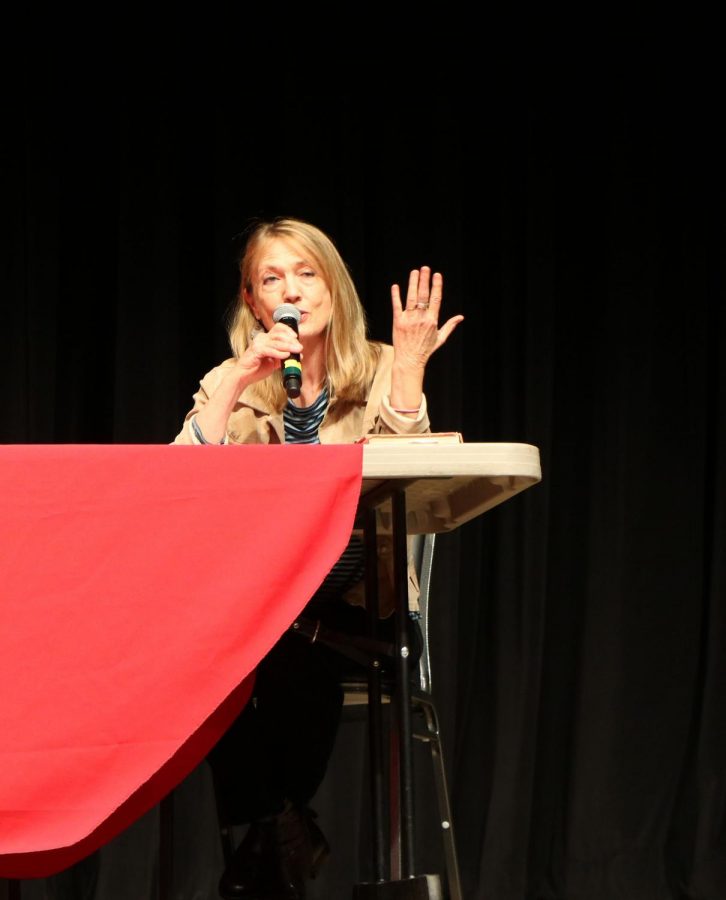“Adios Amor” depicts the true story of the first female union representative
Laurie Coyle, director of “Adios Amor,” talked about her experiences making the film and getting to know Maria Moreno’s family.
April 5, 2019
The Edward Simonsen Performing Arts Center Theater at Bakersfield College had a screening of the documentary, “Adios Amor: The Search for Maria Moreno” on March 28.
“Adios Amor” is a documentary about Maria Moreno, the first female union representative and her struggle to raise her 12 children in poverty.
In the film, director Laurie Coyle stumbled upon photographs of Moreno and began a search to find her.
Coyle got in contact with the family after Moreno’s death in 1988. They go through the photographs and they reminisce what it was like growing up with their outspoken mother.
In the film, George Ballis, a photographer, is interviewed about Moreno.
After the film Jessica Martinez, an English professor at BC, moderated a Q&A about the film.
Audience members asked Coyle and five BC students questions about their background and culture.
One of the panelists, Edith Mata, shared her opinion about the film.
“I do come from an agricultural family and this film I can completely relate to it because I’ve also worked in the fields and I also have a son and I need to support him,” she said.
“My reaction to the film is that Maria Moreno is an empowerment to women and an inspiration because she grew up in an era where women weren’t leaders but that was Maria with her second-grade education and her 12 children advocating for herself, children and all the farmworkers because they were starving.”
Audience members were given an opportunity to ask the panelists questions.
Kevin Salcido asked Coyle if there were other women who inspired Moreno to speak up while she was working for the Agricultural Workers Organizing Committee (AWOC).
Coyle said she didn’t think Moreno was familiar with the organizing that was going on in California, but being a Pentecostal helped her engage with multi ethnic groups of people.
“One of the things that the Moreno’s would do is Maria Moreno would find a place to worship and frequently those were African American churches…and I think a lot of the women African American of the church as well as Mexican American women of the church were formidable figures for Maria Moreno.”





